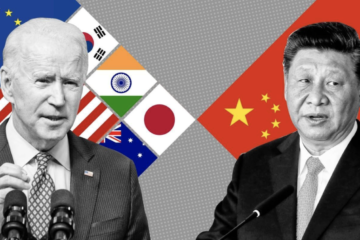Under the backdrop of the Brexit Article 50 judiciary saga as well as the historic US election earlier this month, which essentially determined who the next president is going to be, the make-up of the Senate and therefore the 9th Supreme Court justice, Hong Kong’s own judicial independence is being challenged.
Hong Kong’s rule of law is being ignored by the Standing Committee of the National People’s Congress (NPCSC, China’s rubber-stamp legislature). The central issue in question has to do with the procedure for oath-taking for members of the Legislative Council, the legislative body in Hong Kong’s political system. More specifically, the central issue being fought over is the retaking of oaths, after two newly elected pro-independence politicians did not complete their swearing in due to them altering words during the process, including displaying a banner reading “Hong Kong is not China”.
The NPCSC provided a ‘legal interpretation’ of the content, intent, nature, and method of oath-taking considered valid. A China Liaison Office spokesperson added further that the Hong Kong Government cannot use ‘judicial independence’ as a reason to reject or condemn Beijing’s ‘lawful’ right to interpret the Basic Law (Hong Kong’s mini-constitution).
For a detailed legal primer & analysis, click here

At this point, it is important to note three things:
Firstly, Hong Kong’s Basic Law system is distinct from the Chinese legal system.
Secondly, there is separation of powers (executive, legislature, judiciary) in Hong Kong.
Thirdly, China is interfering with the democratic political system legally granted to the people of Hong Kong by the Basic Law, which was agreed upon by China and the UK in the Sino–British Joint Declaration of 1984. This was the legal instrument that paved the way to the UK handing Hong Kong back to China in 1997.
In releasing their “interpretation” of Hong Kong’s law, the NPCSC fails to respect the right of Hong Kong’s own judiciary to solve its own domestic legislative issues. By doing so, it is not strictly interpreting Hong Kong law, but rather incorporating Chinese national law into Hong Kong’s law. The Hong Kong Bar Association describes this interpretation as unnecessary and inappropriate. More importantly, it undermines the values at the core of Hong Kong’s political system, as well as the values most dear to the its people:「一國兩制,港人治港, 高度自治」, the spirit of ‘One Country Two Systems’, ‘Hong Kong’s self-governance’, and a ‘high degree of autonomy’.
Whilst politically charged, it is important (as was the Brexit case, a matter of process not politics) to distinguish between China’s disregard for Hong Kong’s judicial independence and the implications of their interpretation of Hong Kong’s mini-constitution. Beijing’s decision comes from a country where law is a subset of politics i.e. where judicial independence does not exist. This does not hold true for Hong Kong.
My thoughts might be surprising to some people I’ve spoken to before on this issue. I have kept my frustrations brief. I want to emphasise that my high levels of energy come from anger and the desire to stay angry. As anyone who’s been frustrated by injustice knows, anger takes energy and sadness takes time. I refuse to spend my hours longing when I could be marching, informing, and changing.


